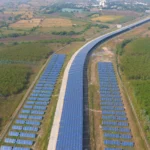A new study from the Capgemini Research Institute, titled “A World in Balance 2025: Unlocking resilience and long-term value through environmental action”, reveals that 82% of organizations globally plan to increase investments in environmental sustainability over the next 12–18 months. Despite mounting global uncertainties and climate disruptions, sustainability is increasingly seen as a core future-proofing strategy to drive competitiveness, innovation, and resilience.
The report, based on a global survey of over 2,100 executives and 6,500 consumers, highlights a critical credibility gap between sustainability intentions and concrete action, with many organizations still struggling to execute detailed climate adaptation strategies.
Sustainability Prioritized, but Execution Falls Short
According to the report, more than four in five organizations are set to ramp up sustainability spending — an 8 percentage point increase compared to last year. The primary drivers include regulatory compliance, profitability, cost savings, and operational efficiency.
However, only 21% of organizations have created detailed transition plans with interim targets and capital allocation, while budget constraints, siloed operations, and inadequate data systems remain major barriers. Nearly two-thirds of executives admit that geopolitical challenges are slowing down sustainability initiatives.
Cyril Garcia, Head of Global Sustainability Services and Corporate Responsibility, and Group Executive Board Member at Capgemini, said:
“Although sustainability regulations are putting less pressure on organizations, business leaders still see sustainability as a core driver of business value. With climate risks increasingly high on the corporate agenda, companies need to adopt a pragmatic, operational approach and urgently implement concrete, financed transition and adaptation measures. This will not only build true resilience, but also fuel innovation and competitiveness.”
Climate Impacts Already Disrupting Businesses
The study found that over 70% of executives report disruptions to supply chains and production due to climate impacts, while two-thirds foresee difficulties in managing insurance and financial risks.
Yet, more than half of organizations admit to being underprepared for climate change. Only 38% have upgraded infrastructure, 31% have shifted production to less vulnerable regions, and just 26% have redesigned products to address climate risks.
AI and Its Environmental Footprint Under Scrutiny
Artificial Intelligence (AI) is emerging as a double-edged sword. While two-thirds of organizations use AI to advance sustainability goals, its environmental impact is a growing concern.
-
57% of executives acknowledge that generative AI’s environmental footprint is now being discussed at the board level.
-
However, fewer than one-third have taken steps to mitigate AI-related emissions.
-
The percentage of executives who believe that AI’s benefits outweigh its environmental costs has dropped from 67% in 2024 to 57% in 2025.
Consumer Skepticism Rising
The report highlights a sharp rise in consumer skepticism:
-
62% of consumers now believe companies are engaging in greenwashing (up from 33% in 2023 and 51% in 2024).
-
76% of consumers say corporations should do more to cut greenhouse gas emissions.
-
Only 25% consider sustainable products affordable, and just 16% believe they have access to sufficient sustainability information.
This growing mistrust signals that transparent, evidence-based communication will be critical for brands aiming to build long-term trust.
Methodology
The Capgemini Research Institute conducted the study in June–July 2025, surveying 2,146 executives from 716 organizations with combined annual revenues of $10.7 trillion across 13 countries and 12 industries. Additionally, 6,566 consumers were surveyed worldwide, alongside interviews with 15 senior executives from leading organizations.











